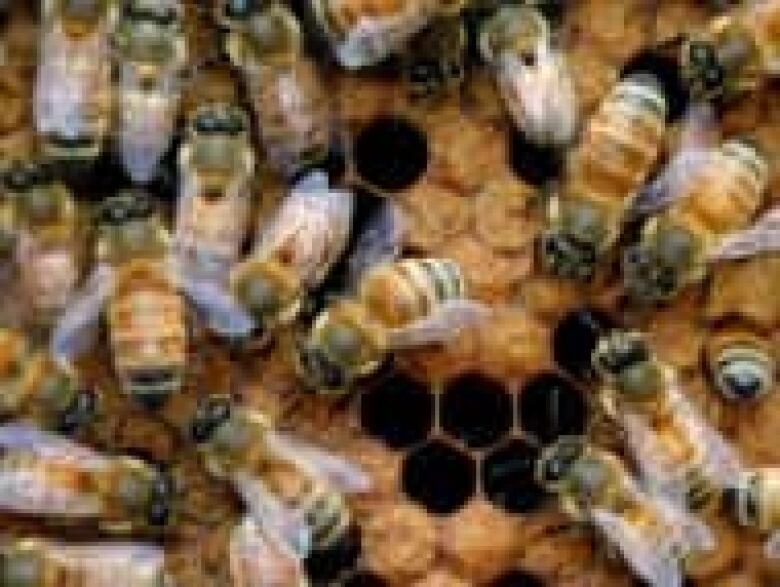Urban bees all the buzz in Calgary

A sold-out course on keeping urban apiaries in Calgary is evidence of a real buzz around beekeeping, says the woman behind the event.
The seminar, to be heldat the Calgary ZooFriday night,has attracted a full-capacity 125 registrants, withmany more turned away, said organizer Eliese Watson.
"I think people really do like the productivity of their gardens and are getting back into the soil and also the hobby aspect of it," said Watson, who runs ABC: Apiaries and Bees for Communities."I think a lot of people are interested in learning new skills, getting their hands dirty."
Backyard beehives are cropping up in cities across North America. For urbanites interested in bringing some country into the city, bees are animportant ingredient, said Paul Hughes.
'They're a part of the food chain, they're part of the food system.' Paul Hughes
"If you're going to have a farm you need to embrace all the different aspects of germination and cultivation and pollination. Bees are a vital, vital part of it," he said. "They're a part of the food chain, they're part of the food system."
Hughes also raises chickens in his yard, and as head of the Calgary Liberated Urban Chick Klub (CLUCK), he has been lobbying city officials to ease restrictions against the practice.
Earlier this week he had a victory. Calgary bylaw officials informed him Thursday they had cancelled a ticket he had been issued for illegally keeping poultry. Hughes had been planning to fightitin court.
The honey bee industry across North America has been plagued by problems in recent years.
A mysterious decline in bee population called colony collapse disorder has stumped researchers. And two parasitic bugs the varroa mite and the honey bee tracheal mite have also hurt the industry, which in Alberta is worth $350 million a year.
Novices need to learn how to care for bees properly, or they could make the situation worse, according to Watson, who plans to expand her course into a full curriculum specifically designed for urban beekeeping.












_(720p).jpg)


 OFFICIAL HD MUSIC VIDEO.jpg)
.jpg)



























































































